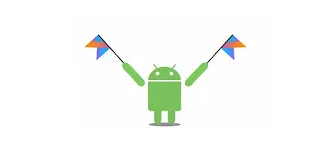43. Kotlin Fundamentals for Android - Custom broadcast handling
🚀 Kotlin Fundamentals: Advanced Custom Broadcast Handling in Android
Welcome, Android developers! In this comprehensive guide, we'll explore the intricate world of custom broadcast handling in Kotlin, diving deep into techniques that will elevate your Android application's communication strategies.
📡 Understanding Broadcast Mechanisms
Broadcasts are a fundamental communication mechanism in Android, allowing components to send and receive system or application-specific messages. In Kotlin, we have powerful tools to create, send, and handle custom broadcasts efficiently.
🔧 Custom Broadcast Implementation
// Define a custom broadcast action
const val CUSTOM_BROADCAST_ACTION = "com.example.MY_CUSTOM_BROADCAST"
// Sending a custom broadcast
fun sendCustomBroadcast(context: Context, data: String) {
val intent = Intent(CUSTOM_BROADCAST_ACTION).apply {
putExtra("message", data)
}
context.sendBroadcast(intent)
}
// Registering a broadcast receiver
class CustomBroadcastReceiver : BroadcastReceiver() {
override fun onReceive(context: Context, intent: Intent) {
when (intent.action) {
CUSTOM_BROADCAST_ACTION -> {
val message = intent.getStringExtra("message")
// Process the received broadcast
}
}
}
}
🔒 Broadcast Security Considerations
When working with custom broadcasts, it's crucial to implement security measures to prevent unauthorized access and potential misuse.
// Implementing a signed broadcast
fun sendSecureBroadcast(context: Context, data: String) {
val intent = Intent(CUSTOM_BROADCAST_ACTION).apply {
putExtra("message", data)
setPackage(context.packageName) // Restrict to app's package
}
context.sendBroadcast(intent)
}
🧪 Practical Exercises
- Create a custom broadcast that sends device battery status
- Implement a secure broadcast with encryption
- Design a multi-component communication system using broadcasts
- Build a background service that sends periodic custom broadcasts
- Develop a broadcast receiver with dynamic registration
⚠️ Performance and Best Practices
🔍 Advanced Techniques
// Dynamic Broadcast Registration
private val broadcastReceiver = object : BroadcastReceiver() {
override fun onReceive(context: Context, intent: Intent) {
// Handle broadcast dynamically
}
}
fun registerDynamicReceiver(context: Context) {
val filter = IntentFilter(CUSTOM_BROADCAST_ACTION)
context.registerReceiver(broadcastReceiver, filter)
}
fun unregisterDynamicReceiver(context: Context) {
context.unregisterReceiver(broadcastReceiver)
}
🎉 Conclusion
Custom broadcast handling in Kotlin offers developers a flexible and powerful communication mechanism. By understanding its nuances, implementing security measures, and following best practices, you can create robust and efficient Android applications.
📱 Stay Updated with Android Tips!
Join our Telegram channel for exclusive content, useful tips, and the latest Android updates!
👉 Join Our Telegram ChannelGet daily updates and be part of our growing Android community!


Comments
Post a Comment